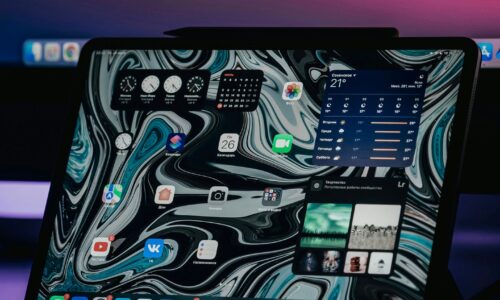Have you ever tried to speak in a language that wasn’t your own, and felt like you were suddenly wearing a different hat? Suddenly, you’re not just the same person — you’re the cooler, more mysterious version who knows how to order coffee in Paris or ask for directions in Tokyo. Maybe you even find yourself thinking in a different way, or making unexpected connections between words that make your brain feel like it’s doing acrobatics.
That’s the magic of multilingualism. It’s more than just being able to ask for directions in a foreign country; it’s about unlocking a completely new version of yourself. If you’ve ever been captivated by the idea of switching between languages, or wondered why some people just seem so good at it, this article will reveal how learning languages shapes the way we think, perceive the world, and even interact with others. Plus, we’ll throw in a little humor, because hey, language is fun, right?
Language Is a Superpower (If You Know How to Use It)
Okay, let’s get real for a second: learning a new language is like unlocking an exclusive VIP pass to a whole new world. Picture it like this: You’re walking down the street in a foreign city, when someone suddenly hands you a mysterious map. But instead of just navigating the city, this map helps you see it differently. Every street, every building, every sign starts to tell you a deeper story. That’s how a new language changes your brain.
Research shows that multilingual people often see the world through a more flexible lens. A study published in Cognition revealed that speaking multiple languages helps you develop stronger cognitive flexibility, meaning you can switch between tasks more easily. Think of it as a brain workout where, instead of lifting weights, you’re tossing words around in different languages. Pretty cool, right?
The Trick to Multilingual Mastery: Apps, Translation Services, and Cultural Exchange
So, how do you get from “I barely speak my native language” to becoming a multilingual mastermind? Don’t worry, there’s no need to enroll in a pricey university course or abandon your day job. Thanks to technology, language learning is more accessible — and yes, even fun — than ever before. Let’s take a look at some top-tier options for shaping your multilingual mind.
1. Language Learning Apps: Your Digital Brain Gym
Ever tried to say “I’m hungry” in five different languages just because you were bored? No? Well, these apps might inspire you to try. Apps like Duolingo, Babbel, and Memrise have revolutionized the way we learn languages. With gamified lessons, daily challenges, and fun quizzes, you’ll feel like you’re playing a game rather than doing work. And hey, who doesn’t love a good streak goal? (I’m looking at you, Duolingo owl.)
Learning with apps isn’t just for tourists trying to sound cool when ordering food abroad. These apps provide personalized learning paths, meaning you can start with the basics (hello, “bonjour!”) and level up to more complex conversations in no time. Plus, they’re perfect for busy bees who want to learn a new language on the go, during their daily commute, or in-between Netflix episodes.
Bonus Tip: Want to make things even more interesting? Use language learning apps to pick up quirky expressions. You know, the ones that don’t make sense in English, but make you laugh when translated. Like the French saying “avoir le cafard” (literally “to have the cockroach”), which means feeling down. Who wouldn’t want to learn that?
2. Translation Services: When You Need a Lifeline
You’ve tried your best, but sometimes, you hit a language wall. And that’s where translation services come in. Imagine you’re in a foreign country, trying to explain why you need more ketchup (for those fries, of course). Your app can only take you so far before you get stuck trying to pronounce something that sounds like an ancient spell. Enter professional translation services like Google Translate, DeepL, or Rev to save the day.
Translation services are not just for the urgent “please help” moments; they’re also fantastic for those deep dives into cultural nuances. For example, while a language learning app will help you say “hello” in Spanish, a translation service can help you understand regional slang and local humor. This means you’ll sound a lot more like a local (and less like a tourist with a heavy accent).
Fun Fact: Did you know that Google Translate is constantly learning? So if you’ve ever been frustrated by its odd translations, take comfort in the fact that it’s getting better all the time. Soon, you’ll be sending perfectly translated love notes (or complaints about your hotel room) in multiple languages!
3. Cultural Exchange Platforms: Real People, Real Conversations
Let’s face it — language apps and translation services can only get you so far. If you want to truly master a language and sound less like a robot, it’s time to have a real conversation. That’s where cultural exchange platforms come into play. Websites like Tandem, HelloTalk, and Speaky allow you to connect with native speakers around the world, swapping languages, and learning from each other’s experiences.
Why is this so valuable? Because language isn’t just about words; it’s about culture, context, and how people interact with the world. When you speak with a native speaker, you get to experience all the nuances and untranslatable expressions that make a language truly come alive. And bonus: You’ll probably pick up some local gossip along the way. Hey, language is a social activity too!
Multilingual Minds: The Unexpected Benefits
So, what’s the big deal about becoming multilingual? Besides making you sound super cool at parties, there are some pretty solid benefits that might surprise you:
- Increased Empathy: Studies show that multilingual individuals are often better at understanding others’ emotions. Being exposed to different languages helps you see the world from various perspectives, making you more empathetic and understanding.
- Brain Health: Speaking multiple languages is like a brain gym. It helps keep your mind sharp, slows down cognitive decline, and even boosts memory. Maybe it’s time to swap your crossword puzzle for a language lesson?
- Travel Like a Pro: With a second (or third) language under your belt, travel becomes so much more enjoyable. You’ll be able to navigate airports, order food, and connect with locals in a way that goes beyond the basic tourist experience.
Wrapping It Up: Your Multilingual Adventure Starts Now
Whether you’re diving into Duolingo for the first time or connecting with a native speaker on Tandem, the world of multilingualism is at your fingertips. Start small, have fun with it, and let your multilingual mind take you places (literally and figuratively). Because when you speak another language, you don’t just unlock a new way of communicating — you unlock a whole new version of yourself.
multilingual minds, language learning apps, translation services, cultural exchange platforms, Duolingo, Babbel, Memrise, Google Translate, DeepL, Rev, Tandem, HelloTalk, Speaky, language learning, multilingual benefits




